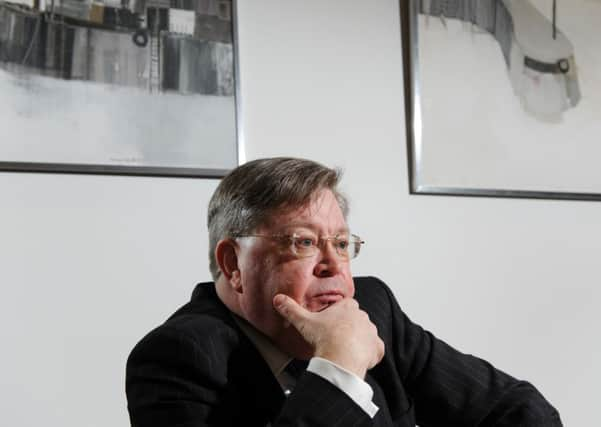Most BoE policymakers firmly against rate hike, minutes show


Minutes of the BoE’s Monetary Policy Committee’s meeting on October 7-8 showed the Bank believed the amount of spare capacity in Britain’s economy was being reduced less quickly than it had previously expected.
In another sign the BoE was in no hurry to raise rates, most of the MPC’s nine members saw “few signs” of inflation pressures building, even taking into account how the stronger pound was lowering import prices, something that could prove temporary.
Advertisement
Hide AdAdvertisement
Hide Ad“For these members, there remained few signs of inflationary pressure in the UK economy, even after looking through the effects of a stronger sterling exchange rate,” the minutes said.
External members Martin Weale and Ian McCafferty voted to raise interest rates to 0.75 per cent from their record-low 0.5 per cent, as they did in August and September.
They said keeping rates low could unbalance Britain’s economic recovery and long delays in the effectiveness of interest rate rises meant an increase now was needed.
But most of the MPC members felt raising rates now could leave Britain vulnerable to possible future shocks to the economy.
Advertisement
Hide AdAdvertisement
Hide AdThey said pay growth was lower than needed for the Bank to meet its 2 per cent inflation target and “further downside news in the euro area had increased the risks” to Britain’s economy.
Last week, the Bank’s chief economist, Andrew Haldane, said he favoured keeping interest rates low for longer, possibly until the middle of next year.
The MPC’s October meeting took place before financial markets were shocked by data that showed Germany’s economy was slowing more than expected, fanning fears about a eurozone recession.
The members of the MPC were aware that inflation would slow sharply to 1.2 per cent in yearly terms in September.
Advertisement
Hide AdAdvertisement
Hide AdInvestors have pushed back their expectations of when the BoE will start to raise interest rates until mid-2015 although most economists are still predicting a first hike in February.
The BoE’s staff stuck to forecast for third-quarter economic growth in Britain of 0.9 per cent.
That is stronger than forecasts by private economists for growth to slow to 0.7 per cent in the July-September period from 0.9 per cent in the second quarter as the weak demand in Europe hurts Britain’s manufacturing sector.